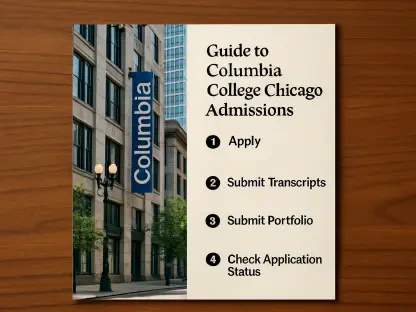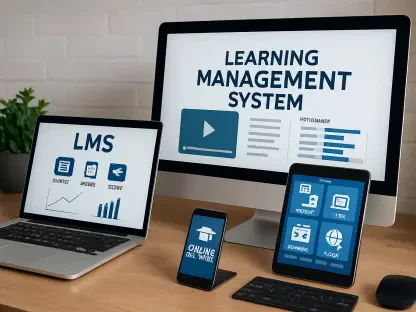For many professionals in their 30s, 40s, or 50s, the idea of returning to school emerges as a potential pathway to career advancement, a complete industry shift, or even personal satisfaction after years of following a predictable routine. The prospect of gaining new skills or credentials can be enticing, promising a fresh start or a competitive edge in a rapidly evolving job market. Yet, this decision is far from simple, as it often involves substantial financial investment, significant lifestyle adjustments, and uncertainty about whether the effort will yield the desired outcomes. Mid-career adults must navigate a complex web of considerations, balancing ambition with practicality while assessing if further education aligns with their long-term goals. This article seeks to provide a clear framework for evaluating whether heading back to the classroom at this stage of life is a strategic move, offering insights into the challenges and opportunities that lie ahead for those contemplating such a transformative step.
Clarifying Career Objectives
Stepping back into an academic environment after years in the workforce demands a sharp focus on purpose. Mid-career professionals must first define what they hope to achieve—whether it’s climbing the corporate ladder, transitioning to a different sector, or fulfilling a lifelong aspiration. Without this clarity, there’s a risk of investing time and resources into a program that doesn’t serve specific needs. Experts in career counseling emphasize that having a precise target, such as acquiring skills for a particular role or industry, ensures that the chosen educational path aligns with tangible outcomes. This initial step of introspection acts as a compass, guiding decisions about which programs to pursue and the level of commitment required, ultimately preventing missteps that could lead to frustration or wasted effort.
Beyond just identifying a goal, it’s essential to map out how education fits into the broader career trajectory. Consider whether the desired outcome requires a full degree or if a more targeted credential might suffice. Reflecting on past experiences and current job satisfaction can reveal gaps that education might fill, but it also raises questions about timing and relevance. For instance, pursuing a degree in a field with declining demand could undermine the entire endeavor. Thorough self-assessment, possibly with input from mentors or career advisors, helps ensure that the motivation behind returning to school is both realistic and aligned with market needs, setting a strong foundation for the journey ahead.
Assessing Financial Realities
The financial implications of returning to school mid-career often present a significant hurdle that cannot be overlooked. Tuition fees, books, and other associated costs can quickly add up, creating a heavy burden, especially for those already managing substantial responsibilities like mortgages or supporting a family. Data shows that average student loan debt sits around $38,000, a daunting figure when considering the limited time before retirement to recover such expenses. For many, the prospect of taking on debt at this stage feels risky, as the window to earn back the investment is shorter compared to younger students. This financial strain necessitates a careful evaluation of budgets and long-term fiscal health before committing to any program.
However, solutions exist to mitigate these monetary challenges if explored proactively. Employer-sponsored tuition reimbursement programs, for instance, can significantly reduce out-of-pocket costs, with some companies covering partial or full expenses for relevant education. Scholarships, grants, and part-time study options also provide avenues to lessen the financial load. Researching these opportunities thoroughly and discussing potential support with employers can make a substantial difference. Additionally, weighing the cost of education against current earnings and potential post-graduation income is critical to avoid overextending financially. A strategic approach to funding can transform an intimidating expense into a manageable investment, provided all options are carefully considered.
Evaluating Potential Returns
Beyond the immediate financial outlay, the long-term value of further education must be scrutinized to determine if it’s a worthwhile endeavor. While studies indicate that a bachelor’s degree can offer a lifetime return on investment exceeding 600%, the timeline to break even often stretches over a decade, and not every program translates directly into higher earnings or improved job prospects. This discrepancy highlights the importance of researching specific fields and programs, focusing on metrics like job placement rates and median salaries post-graduation. Resources such as government labor statistics can provide valuable data to forecast whether a degree will deliver measurable career benefits or simply add to financial strain without proportional gain.
Moreover, the return on investment isn’t solely about money—it also encompasses personal and professional growth. For some, a degree might open doors to leadership roles or industries previously out of reach, while for others, it could mean greater job security in a competitive market. However, these benefits must be balanced against the reality that certain sectors prioritize experience over additional credentials. Investigating industry trends and networking with professionals in the target field can offer clarity on whether the time and money spent will yield the anticipated advancement. A calculated approach, grounded in data and realistic expectations, ensures that the decision to return to school is not just hopeful but strategically sound.
Navigating Lifestyle Changes
Returning to school mid-career often requires a profound shift in daily routines, impacting far more than just bank accounts. Balancing coursework with existing commitments—such as a full-time job, family responsibilities, or personal interests—means sacrificing leisure time and potentially stepping back from social engagements. This reallocation of hours can strain relationships or lead to feelings of isolation if not managed thoughtfully. Mid-career adults must honestly evaluate their capacity to handle a demanding schedule, recognizing that success in an academic setting at this stage often hinges on the ability to adapt to a more structured and intense lifestyle without succumbing to burnout.
Additionally, the mental and emotional toll of this transition should not be underestimated. Adjusting to the rigors of studying after years away from formal education can be daunting, requiring a rediscovery of learning habits and time management skills. Support systems, such as family understanding or flexible work arrangements, play a crucial role in easing this shift. Planning ahead by setting realistic study schedules and communicating needs to employers or loved ones can help maintain balance. Acknowledging that temporary sacrifices are part of the process, while focusing on the end goal, enables individuals to navigate these changes with resilience, ensuring that personal well-being remains a priority amidst academic pressures.
Addressing Age Dynamics
Age can subtly influence the experience of returning to school and re-entering the job market, presenting unique challenges for mid-career professionals. Despite legal protections against discrimination, biases related to age persist in some hiring practices, with employers occasionally favoring younger candidates perceived as more adaptable or cost-effective. This reality can create hesitation about whether investing in education at this stage will be viewed positively or met with skepticism. However, pursuing further education can also serve as a powerful counter to such biases, demonstrating a commitment to growth and relevance in a fast-changing professional landscape.
Staying competitive often means pairing new credentials with current industry knowledge, particularly in areas like technology or emerging trends. For example, showcasing familiarity with digital tools or innovative practices alongside a degree can signal versatility to potential employers. Engaging in continuous learning, even beyond formal education, through workshops or online courses, further reinforces adaptability. Networking with younger peers or industry leaders during studies can also help bridge generational gaps, providing insights into modern workplace expectations. By proactively addressing age-related concerns with a focus on skills and relevance, mid-career learners can position themselves as valuable assets rather than outliers.
Considering Non-Traditional Pathways
Not every career goal requires a traditional degree, especially in today’s evolving job market where practical skills often take precedence over formal education. Certifications, bootcamps, and other short-term programs offer efficient alternatives, delivering targeted expertise at a fraction of the time and cost of a full degree. These options are particularly appealing for mid-career professionals seeking to upskill quickly or pivot to a new field without the extensive commitment of years-long academic pursuits. Hiring managers increasingly value demonstrated abilities and relevant experience, making these pathways a viable choice for many looking to advance or redirect their careers.
Exploring these alternatives also allows for greater flexibility, catering to the unique constraints of mid-career adults. Many programs are designed with working professionals in mind, offering online or part-time formats that accommodate busy schedules. Researching which credentials hold weight in a specific industry—whether it’s a project management certification or a coding bootcamp—ensures that the chosen path aligns with market demands. Additionally, these shorter programs often provide direct connections to job opportunities through partnerships or alumni networks. Opting for a non-traditional route, when appropriate, can achieve similar or even superior results to a degree, reflecting the shifting priorities of employers in valuing competency over credentials.
Making an Informed Decision
Reflecting on the journey of countless mid-career professionals who ventured back to school, it becomes evident that success hinges on meticulous planning and alignment with personal aspirations. Many who took this path found that defining clear objectives and securing financial support were pivotal in overcoming obstacles. The sacrifices in time and lifestyle, while challenging, often proved worthwhile when paired with realistic expectations of returns. For some, alternative learning options provided the necessary boost without the weight of traditional education’s demands, highlighting the diversity of paths available in past decisions.
Looking ahead, mid-career adults contemplating this step should prioritize thorough research into programs, funding, and industry needs as the next actionable move. Engaging with career advisors or alumni for firsthand insights can illuminate potential outcomes. Crafting a detailed plan that accounts for lifestyle adjustments and counters age-related biases through skill-building ensures readiness for the challenges. Ultimately, weighing all factors—financial, personal, and professional—against the backdrop of alternative routes empowers individuals to choose a direction that best fits their unique circumstances, paving the way for a fulfilling career evolution.









